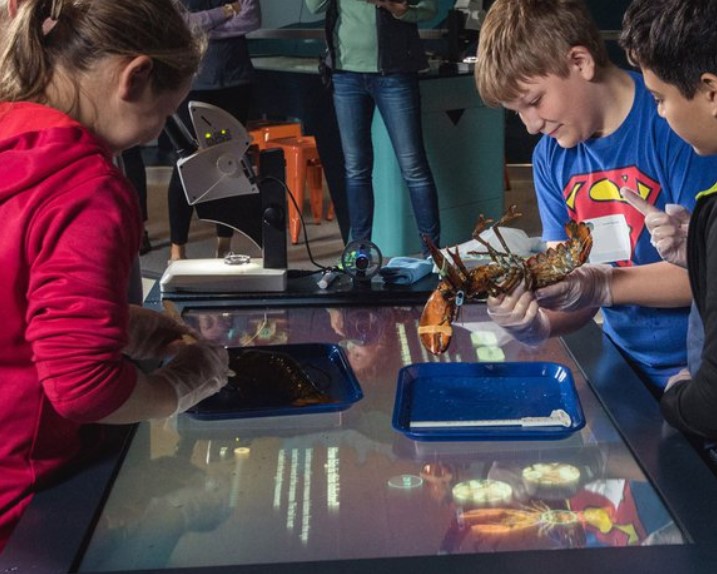LabVenture

Leveraging the Power of Reflection and Visual Representation in Middle-Schoolers' Learning During an Informal Science Visit and Beyond
The project will address a longstanding problem of practice in informal science education: how to increase the likelihood of retention and subsequent use of learning from short-duration experiences. In addressing this challenge, this project will contribute a model for combining engagement with visual representations and narrative reflection during and after informal learning experiences. Design-based research, conducted by a multidisciplinary team, will focus on the LabVenture program at the Gulf of Maine Research Institute (GMRI). LabVenture annually hosts nearly 70% of Maine’s 5th and 6th grade cohort for a 2.5 hour exploration of the Gulf of Maine ecosystem, and is free to schools to ensure equitable access. The LabVenture program offers an ideal context for addressing the research questions concerning (1) whether and how interpreting and constructing visual representations, such as drawing, improves students’ understanding of science; and (2) what further benefits are conferred by marrying engagement with visual representations and prompts for reflection. Outcomes focus on students’ memory of informal science learning experiences and subsequent use of science information and practices in their classrooms and at home.
This project is funded by the Advancing Informal STEM Learning (AISL) and the Discovery Research PreK-12 (DRK-12) programs. It supports the AISL program goals to advance new approaches to, and evidence-based understanding of, the design and development of STEM learning in informal environments. It supports the DRK-12 program goal of enhancing the learning and teaching of STEM by preK-12 students and teachers. More details about this project are available on the NSF award site.

